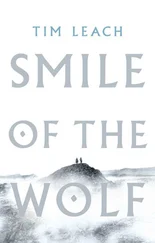On that night, the fires were burning low, the air thick with the stink of wine, when at last the Emperor asked this question: ‘What would you have me do with your people?’
The barbarian’s head, lolling from the lateness of the hour and the weight of the wine, snapped upwards. For he could feel the danger, the way that the man who is watched by the wolf can feel the animal’s eyes upon his neck, even if he cannot see it amidst the trees.
The Emperor put his cup of wine down. He leaned forward, and steepled his hands together. ‘Once I have defeated them – and I shall, you must believe that – what is to be the fate of your people?’
The Sarmatian was silent for a time. Then: ‘Why ask me?’
‘Why not you? You are as good as any to decide. You are intelligent – for a barbarian at least. Old enough to know your people, and to know yourself.’ A dry chuckle. ‘I would not ask a young man such a thing. For they know nothing at all.’
‘Let them go free,’ the barbarian said at once, though he might as well have asked the Emperor to pluck the moon from the sky.
‘That I cannot allow. They have shamed Rome. I shall have barbarians raiding on every border, and half of my provinces in open rebellion. You have come once too many times over the Danubius. It shall not happen again.’
‘Then what are the choices?’
The Emperor thought for a time. Then he spoke, his tone as simple and matter-of-fact as a tutor describing a principle of grammar. ‘There are two that I see. One is that I shall put them all in chains, to serve Rome.’
‘Warriors?’
‘No. A few shall be gladiators. But I will not have your cavalry left roaming to cause trouble. They shall be field slaves, house slaves. Catamites. Whores.’ The Emperor reached out his cup, and a slave filled it at once. ‘Or I shall wipe them out,’ he said, offhand, as he took another sip of wine. ‘Every last one.’
‘You could not do it.’ There was fire now in the way the barbarian spoke, enough to make the guards take half a step forward from where they stood at the entrance, their spears dropping down. The Emperor, with an irritable, fatherly gesture, waved them back.
‘I am an old man now,’ he said. ‘I have no wish to spend my last years here, chasing your people across the plains until the last one is piled on a corpse fire. But I shall do it. We have done it before, at Carthage. We shall do it again, if we must.’
Still, there was defiance etched into the barbarian’s face. The Emperor felt a little admiration, and perhaps pity. Like children these people were, they knew so little of the world. ‘You doubt me? A shame, that you do not understand what Rome is, even though you have fought us for so long. You have told me that your people value your honour above all else?’
The barbarian nodded slowly.
‘My people do as well, in our own way. But for us, honour and power are one and the same thing.’
‘You cannot do it.’
A little smile on the lips of the Emperor. ‘They have all said that. “We, our people, we are different.” But they never are.’
The Emperor stood – a little unsteady, a hand upon the desk to give himself the strength to rise.
‘I am going to show you something that none of your people know,’ he said. ‘A secret, of sorts. It will be only my words and a few scratches on a map, no more proof than that. But I shall speak the words, and you shall know them to be true.’
With the soft clink of chains the barbarian rose, shaking from the wine and with fear. And with slow and trembling steps, he came forward to receive that secret.
From the entrance of the tent, the Praetorian guards watched. Hand-picked veterans, they had long served as the Emperor’s bodyguard, and they had seen such scenes many times before. The Emperor was speaking softly now – too soft for the words to travel to where the Praetorians stood at first. The finger pointing again and again to different places on the map, placing a gold coin down as some kind of trophy or token, tracing a grand outline that encircled many nations. One of the guards listened closer, and thought that he could hear the words. And it was not words, but numbers being spoken. The counting of thousands, and thousands, and thousands.
Just numbers, but the guards could see the barbarian shivering at them. Then bowing lower and lower, until at last he sank before that desk, as a fearful, pious man might lay himself before the altar of the god he had angered, to beg forgiveness or await a judgement.
Once again, the Emperor spoke, loud enough for all to hear clearly. A question, but spoken with the tone of a command.
‘So, tell me. What shall I do?’
There was no other noise for a long time. The snuffling, weeping of the barbarian, the soft whisper of brazier and torch, the mutter of the wind.
At last, the barbarian raised his head. And he gave his answer.
Part 2
THE TWICE DEAD MAN
Once more, the circle and the dream. The smothering darkness, and a nameless terror wrapped about the heart.
The chanting warriors surrounding Kai, the doomed man at his feet. A man condemned by no crime but age – his back bowed with unceasing pain, numb hands that could no longer hold the reins. And so now this, in place of the death in battle. An honourable end of sorts.
The circle fell silent, the sword heavy in Kai’s hand. And as always in the dream, Kai swung too slow. As always, the man raised his head. And it was his father’s face that he looked upon.
But this time, the dream was longer, worse. Something different, and all too familiar. This time, he saw once more the shame of what he had failed to do.
The sword falling from his hands, and as soon as it touched that dream ground it vanished, the mistake already irreversible. And he was moving back, sliding half-steps, his hands raised in supplication, surrender.
Silence from those who watched, those shifting, changeable faces of the dream. All those that he had ever known, it seemed, were there to bear witness. The only sound came from his father – Kai had heard the screaming of gutted men on the battlefield, the maddening keening of women holding stillborn children to the breast. But he had never heard a worse sound than that low moan of shame.
Then from the circle, a figure walking forward. The light on the blade, the swing and the cut. A scream.
Kai woke to darkness, stillness, the sound still ringing in his ears. An awful longing to return to the dream, to that impossible hope of changing the past.
He felt Tomyris stirring against him – not yet fully awake, still locked in some dream of her own. Carefully, so as not to rouse her, Kai reached out a hand to the flap of the tent and lifted it aside. For a time, he watched the falling of the snow. All about there were the Sarmatian people – emerging from the wagons of tented felt, gathered about fires, bartering and pleading with one another. A world there, but one that he was sealed away from, like those realms of the old stories, cities hidden beneath water that could be seen but never reached. He was alone in his shame.
For he was a captain no longer. Not even a place in the warband, without Bahadur to pledge for him. There were few that the Sarmatians killed or exiled – only the worst of men, the rapists of children, the murderers of kin, blasphemers against the gods. But there were many whom they killed in slower, quieter ways. The outcasts and the shamed, pushed to the fringes of the clan, with whom none would share the gift-friendship that a nomad must have to live, the flask of wine and bowl of stew that is given freely to those who need it. Now perhaps there was only a waiting for sickness or hunger to claim him. Waiting to watch his child die.
Читать дальше
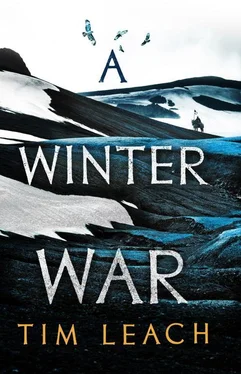
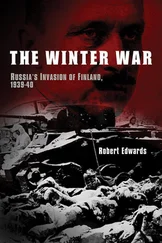

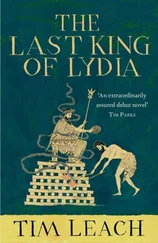
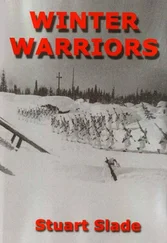
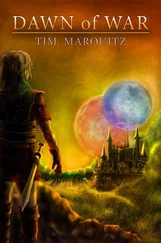

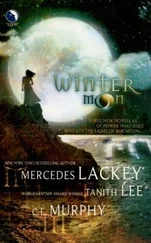
![Стюарт Слейд - Воины зимы [Winter Warriors ru]](/books/401383/styuart-slejd-voiny-zimy-winter-warriors-ru-thumb.webp)
